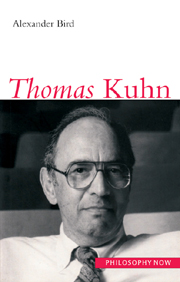6 - Progress and relativism
Summary
Kuhn's conception of scientific progress
The simple cumulative view of science – science as the discovering of truths and scientific progress as the growth of a stockpile of true scientific beliefs – is clearly mistaken. Many past scientific beliefs have been found to be in error and most likely many still are. However, while individual theories may have false consequences, and so are false overall, they may nonetheless have important true consequences. So a more sophisticated view of progress takes both truth and falsity into account. Propositions and theories may be nearer to, or further from, the truth. Progress is made when an old theory is replaced by new one that has greater verisimilitude – truthlikeness.
Kuhn rejects this account of scientific progress. His own views have been caricatured as saying that progress during normal science is relative only to the governing paradigm and that changes of paradigm are irrational leaps from one way of doing science to another. In fact Kuhn has a far more solid notion of progress than this, one that does allow for improvement across paradigms, and he rejects the charge of relativism. He replaces the notion of progress as increasing verisimilitude with a conception of science as growing in problem solving capacity. Progress during normal science can easily be understood as continued success in solving problems. Something similar may be said about progress through revolutions. Since revolutions are revisionary, we cannot simply say that problems continue to be solved, albeit in a different paradigm, since that in itself would indeed be consistent with starting all over again, with no continuity with what went before.
- Type
- Chapter
- Information
- Thomas Kuhn , pp. 209 - 266Publisher: Acumen PublishingPrint publication year: 2000



